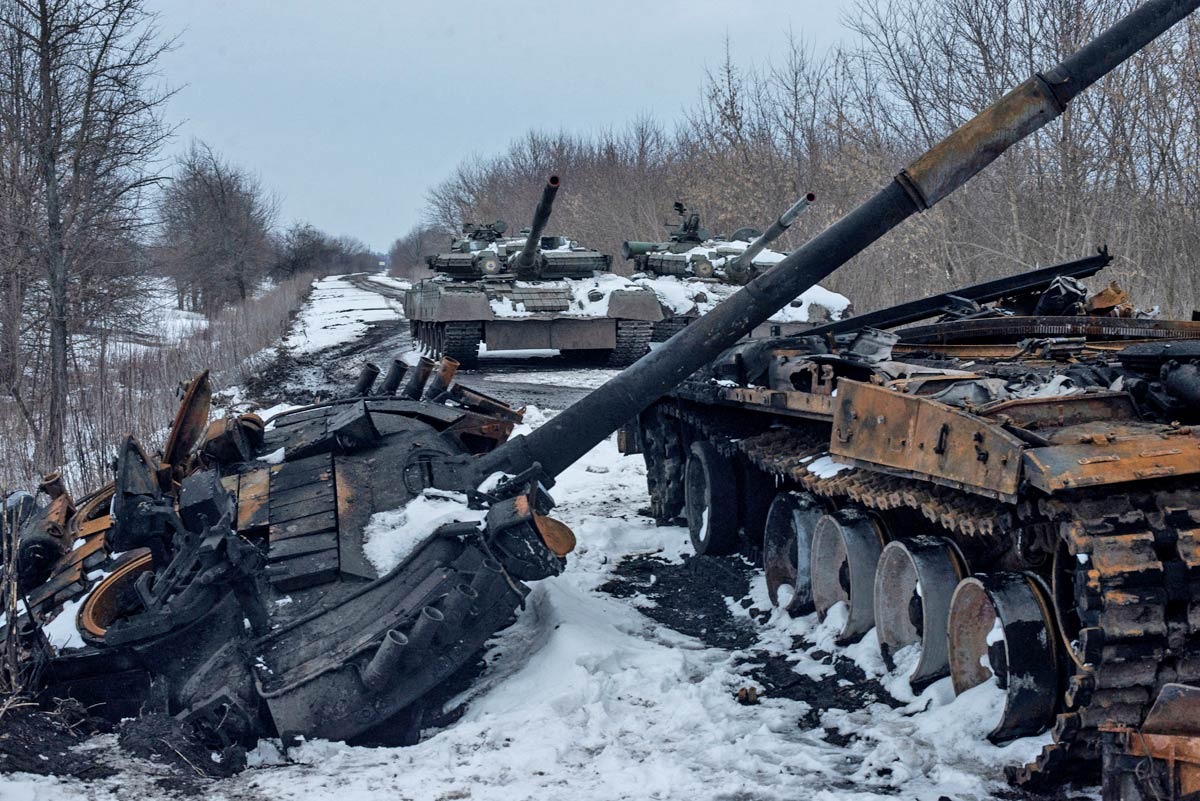Ukrainians are waging a just war against Russia’s barbaric acts of terror. It is good that Ukraine is not playing the same card as the terrorists from Moscow – says divisional general Roman Polko, former head of the National Security Bureau and commander of the special unit GROM, in a conversation with BiznesAlert.pl.
BiznesAlert.pl: What are the implications of the Ukrainian conflict for Poland? How has the security reality changed?
Roman Polko: First of all, the war silenced the experts who had ideas about a new model army or similar nonsense and argued that we needed a small, professional army, claiming that today’s wars will be taking place in space, like in Star Wars. First of all, the current war is different than the ones in the past, it is being fought on many fields, also in cyberspace, and in the information sphere, while a massive use of drones revealed a huge potential, whether for attacks or for reconnaissance. This war mixes super-modernity and innovation with tradition, and many civilians are being killed in the conflict, which is devastating. Putin’s terror strategy is to kill civilians, he doesn’t want to seize territory, he wants to destroy it.
Is Poland well prepared for a possible war with Russia and such tactics?
It must be acknowledged that Poland identified the threat well. We knew that the West’s perception of Russia is somewhat infantile, romantic. We knew that Russia was in fact an enemy, not a partner. Some have succumbed to this magic, creating strategies akin to that of Fukuyama who wrote about the end of history. Fortunately, the last defense ministers in the current government did not succumb to this magic. Minister Klich and Siemoniak (from the Civic Platform-led, previous government – ed.) acted differently, they were in fact scaling down the army, looking for savings, convinced nothing threatened us. They did not, in fact, carry out the duties assigned to that office. Today Poland has a more or less efficient army. Our army is not based on cannon fodder. We were like that in the early 1990s when our soldiers were sent to Yugoslavia, where we received plundered, destroyed, battered equipment. There was no caring about people, about their fate, health, even life.
What about the equipment? Still a lot of post-soviet equipment and weapons can be found in the Armed Forces…
It’s true that when it comes to the equipment the situation was changing a lot. For years, these post-Soviet weapons have constituted the vast majority of our armament. This is especially evident in the case of air defense or modernization of armored weapons. The conflict in Ukraine has shown that the ability to defend against air strikes is very important. One of the brightest achievements of the recent years is the expansion of special forces, which have become the face of our army. There is nothing to be ashamed of, both in terms of training and weapons. Another positive aspect of modernization is the creation of Territorial Defense Troops, which, indeed, looking at the experience of Ukrainians, are fully adapted to the modern battlefield, especially if they are well equipped and highly motivated. After the outbreak of the war, modernization decisions were significantly accelerated. We leave our allies, for example, the Germans, far behind, as they have forgotten that Article III of The Washington Treaty talks about building domestic defense capabilities.
Returning to Ukraine. Where does the success of its army in the fight against the Russians come from?
The Ukrainians learned their lesson in 2014, and their army functions quite differently today. The first positive thing was the mental change. A departure from the typically eastern approach to soldiers, to the use of equipment, to training. They diverged heavily from the Russian army in terms of weapons, but this mental factor when combined with Western support, plays a key role. They defend themselves well because NATO supports Ukraine on many levels including reconeissance and intelligence. They’re able to track the Russians. Access to information is crucial. Some say that what is missing is a proportional response to the Russian terror with terror on Russia’s own territory. Fortunately, Ukrainians do not do this, which translates into the support of Western societies. This is a classic example of a just war. Ukraine has already won in this field with Russia. The West should impose sanctions on Russia, which fortunately is happening.
So what does Ukraine need now? What do they need most to conduct an effective offensive?
The key is the armament and supply of ammunition. In the future, it will be necessary to support Ukraine with air equipment, since it is impossible to conduct offensive operations without the participation of an air component. Another element is air defense. Ukraine needs to secure its critical infrastructure, and this is crucial. In this regard, the West must step up its efforts.
Interview by Mariusz Marszałkowski









